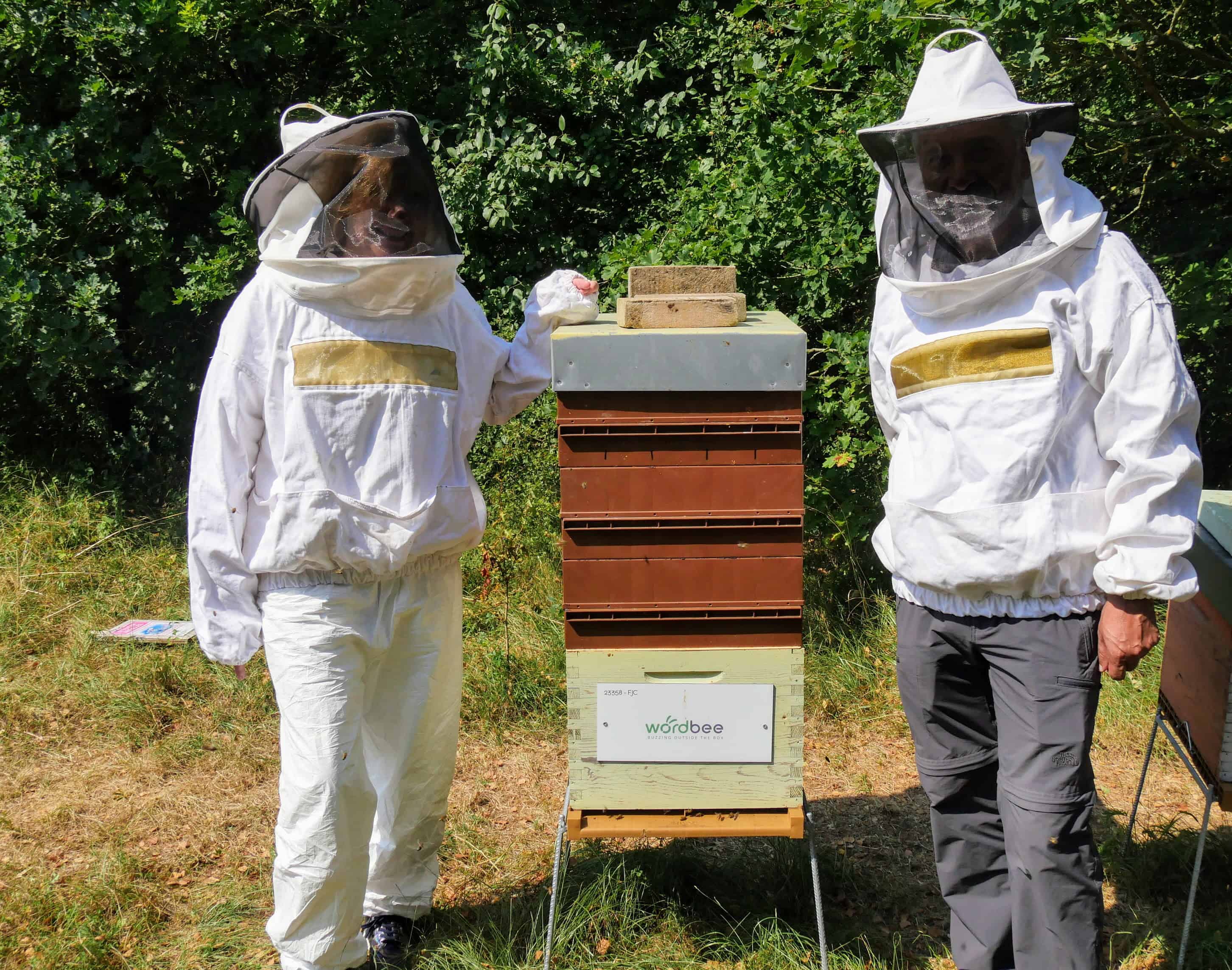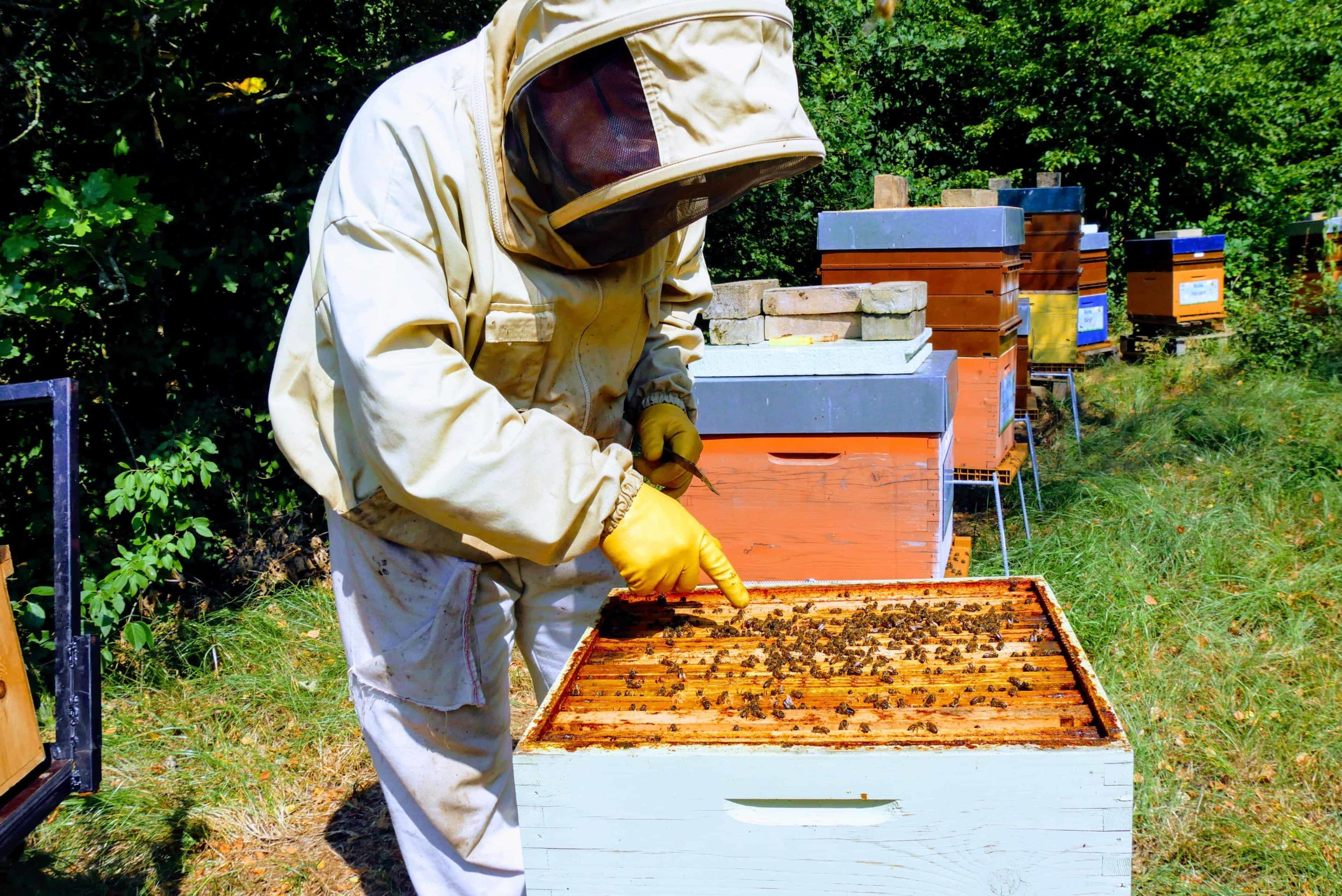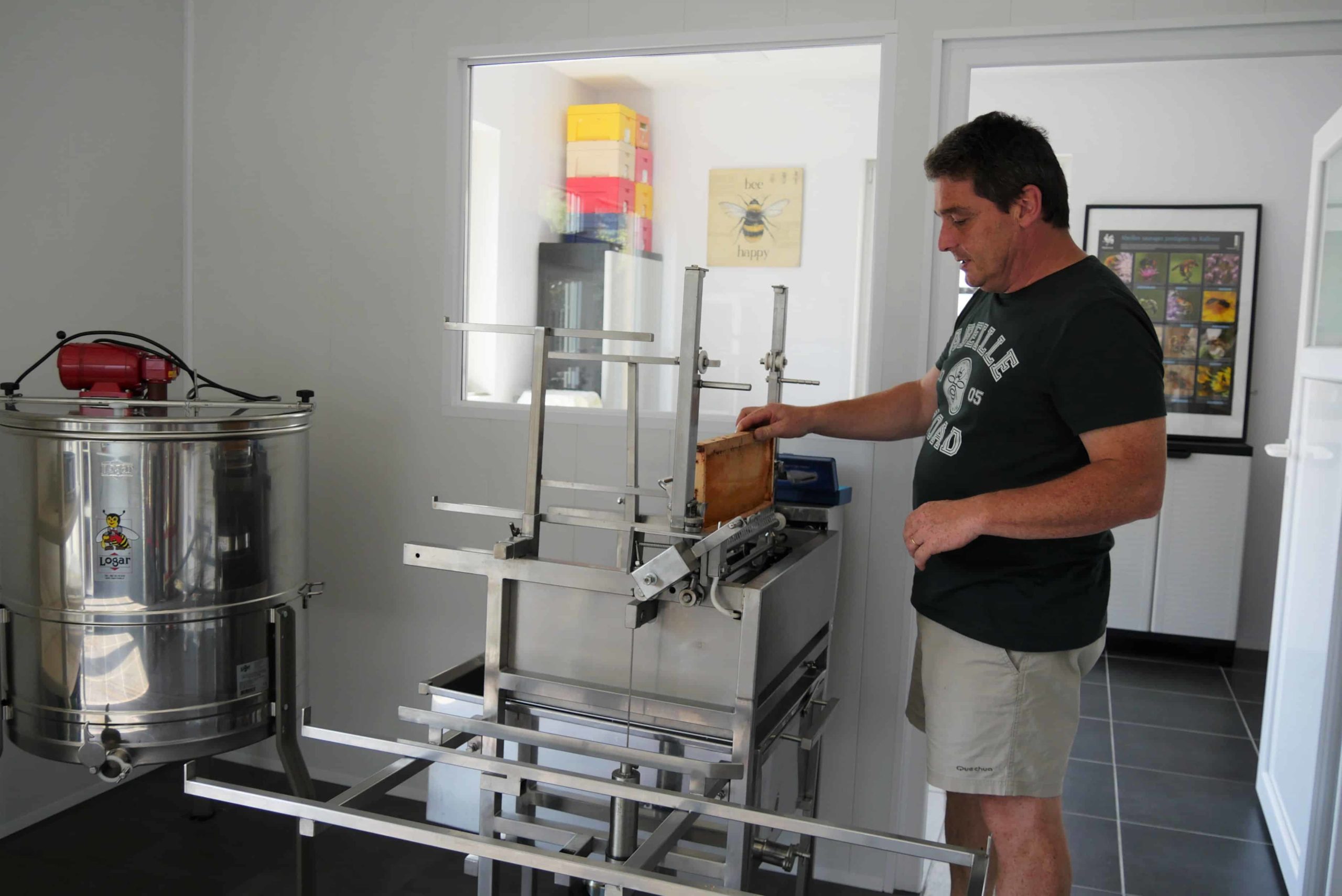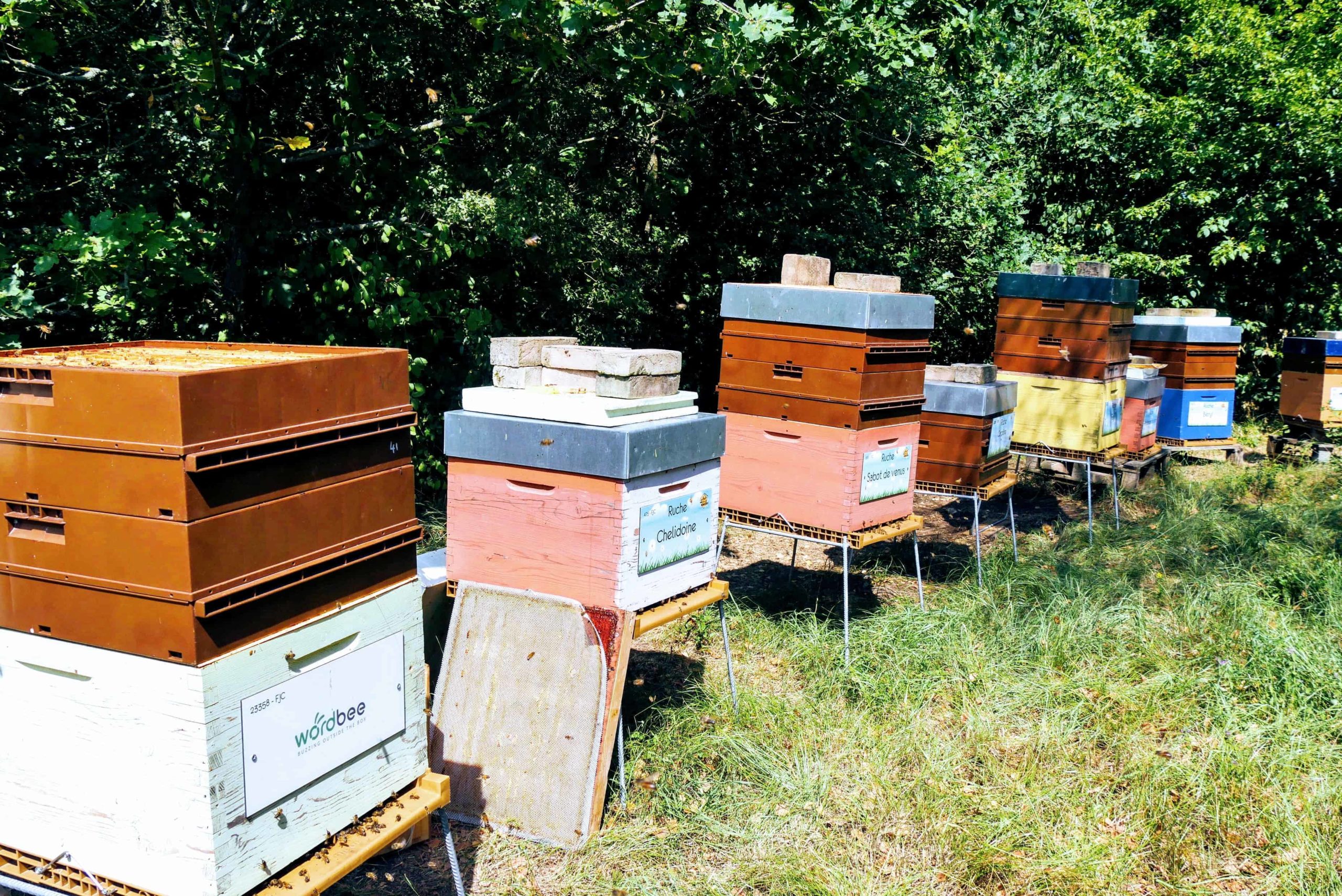Responsabilità globale
Wordbee believes that the private sector has an important role to play in helping to protect the environment. For the past five years, we have been involved in a partnership to promote awareness about honeybees.
The threats facing honeybees are well documented, which include a variety of diseases, parasitic mites, the implications of climate change and lack of diverse habitats for their food supply. Silently, billions of bees are dying off, putting our entire food chain in danger. Bees don’t just make honey — they are a giant, humble workforce, pollinating 75% of growing plants.
The Wordbee Beehive with Anita Sempels and José Vega
We couldn’t become beekeepers ourselves but we were able to adopt a beehive. We receive regular updates from our beekeeper and we learn all about the joys and challenges of the beehives. At the heart of this partnership are our charitable objectives which are to actively promote the value and appeal of honeybees to the wider public. We want to help safeguard honeybee welfare by promoting research into disease and encouraging the replacement of lost habitats.
Wordbee regularly participates in translation industry conferences (LocWorld, Gala, etc.) and at our booths, we promote the importance of honeybees, distributing jars of honey to visitors, while explaining the purpose of our sponsorship.
Meet our beekeeper: Frédéric GOFFIN
“I’am passionate about the honeybee world. Honey production is for me just as important as to have a deep knowledge of the honeybee behavior in the hive and in its natural environment. Therefore, i decided to attend a two-year course to improve my knowledge as well as a specific training on breeding queen bees in April 2013. It will allow me to breed my own queens to populate our future swarms with a view to increase our bee population to 40 to 50 hives in 3 or 4 years. My wish is to add another brick in a home for bees. If these little creatures were to disappear, nearly 80% of all plant species would become extinct and vanish from the earth’s surface. Plants are the basis for the equilibrium of the ecosystems, they make up 35% of our food resources… Hence the need to breed more bees to protect them.”
To learn more about our honeybee awareness campaigns, or to find out about our adopted beehive, click here





















